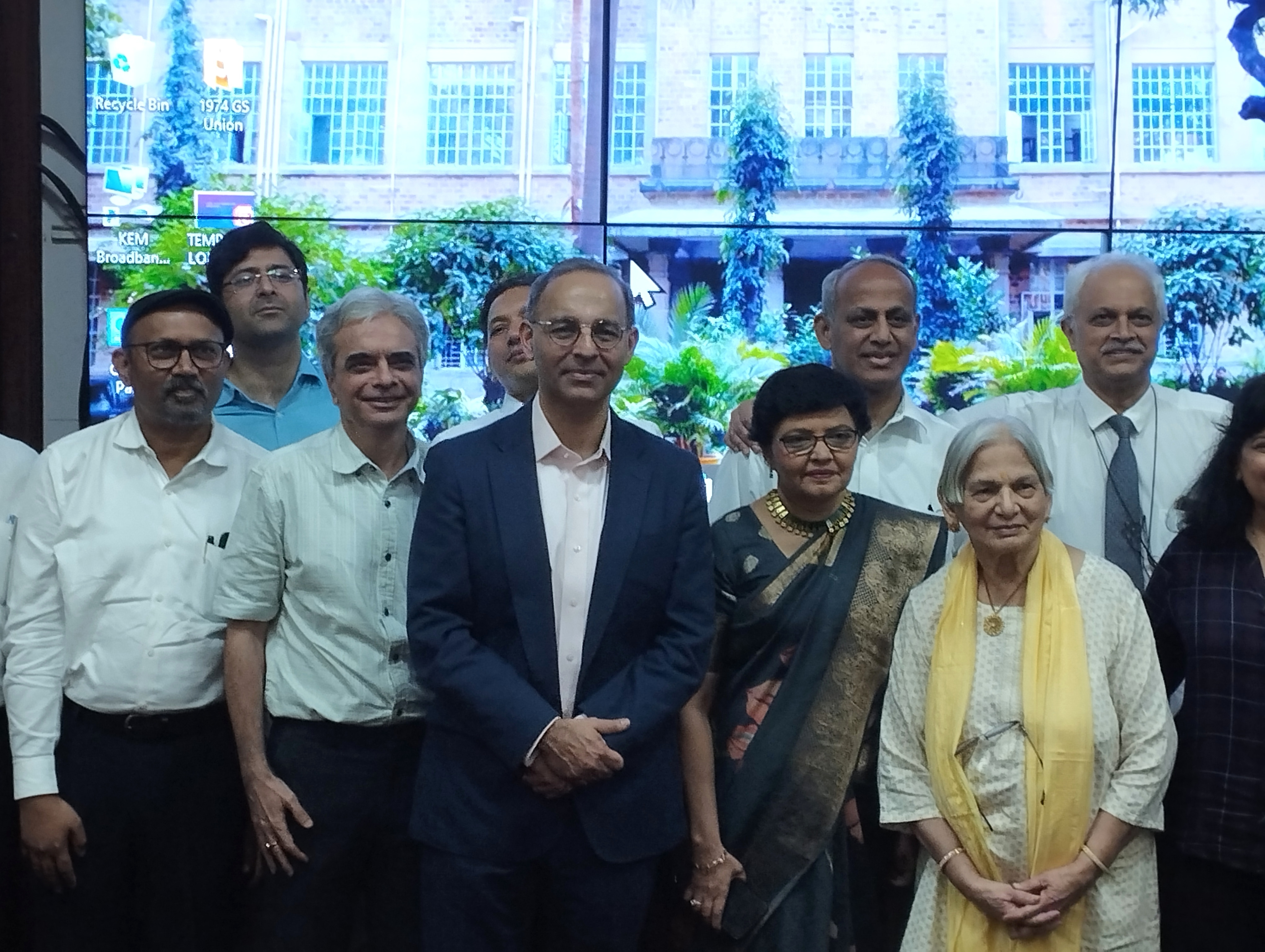
Amid fears that the AI boom might kill employment opportunities across sectors, medical professionals are of the view that artificial intelligence will not hamper jobs in the healthcare space. This is because the technology will only assist professionals, and more hands will be needed for AI-tech assistance.
“There is a fear that different disciplines are going to change. But I want to share with you a recent analysis, that almost 30-40% of job description in the U.S. in the next 7-10 years are going to change, and many of them will become AI and Chatbot assistants,” Dr. Jag Singh, MD, DPhil, Professor of Medicine at Harvard Medical School, said in a guest lecture organised by Seth GS Medical College and KEM Hospital in Mumbai.
However, the way healthcare systems work will change dramatically with the rooting of artificial intelligence, and that might lead to some restructuring across disciplines and departments.

Dr. Jag Singh at the guest lecture organised by Seth GS Medical College and KEM Hospital in Mumbai.
Throwing light on the future face of the global healthcare sector, Singh said that artificial intelligence will introduce mega changes in the medicine arena and will equip the medical system with tools such as AI-powered sensors, wearables, smartphones and even tattoos to identify patterns in patients and ensure early diagnosis of diseases through intensive and mass data collation.
Moreover, the clinical behaviours of humans can be phenotyped by such tools to predict psychological disorders as well as physical ailments such as hypertension and diabetes.
According to Dr. Singh, AI algorithms will empower machines to even predict heart failures, mortality and future chronicity of various diseases, depending on the current signs and symptoms.
AI-powered wearables such as smartwatches, lockets and even tattoos will not just help patients track their own “heart status”, but will also help medical practitioners to track the patients' health virtually through cloud-based technology, ensuring multi-disciplinary care for patients, he said.
Augmented reality is another child of artificial intelligence, he highlighted. Like robotic surgeries, it has already been put to execution in several nations. Through augmented reality, doctors can work on a graphical representation of human anatomy to perform surgeries more efficiently.
In terms of public health at a mass level, expectations are that artificial intelligence will be able to catch red flags and community diseases on time, to be able to avoid any epidemics or pandemics like Covid-19. Also, although not much is known about using AI to detect food and drug allergies in children, Singh showed confidence about it happening sometime soon.
On key challenges that the global healthcare system might face in implementing AI in healthcare, Singh agreed that wrong predictions, patients' privacy, lack of proper regulation and key metrics for AI tools, misuse of AI for both corruption and criminal purposes in the healthcare system, and lack of trust amid the public are key risks that health authorities would face in implementing AI technology.
Ownership of accuracy is another issue. In robotic surgeries, for instance, one might not know whom to blame—the doctor or the machine, said Dr. Singh.
When asked about execution of artificial intelligence in India, Singh pointed out that inadequate resources, health infrastructure, finances, lack of awareness about AI, illiteracy and the rural-urban divide are major risks for developing nations.
However, he said that India is in a good position to welcome AI in its healthcare space, also keeping in view the government's thrust on digitisation and technology.
Essential Business Intelligence, Continuous LIVE TV, Sharp Market Insights, Practical Personal Finance Advice and Latest Stories — On NDTV Profit.























